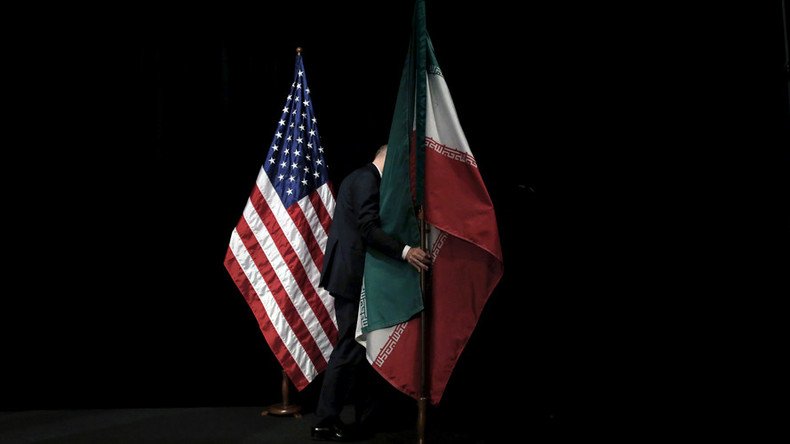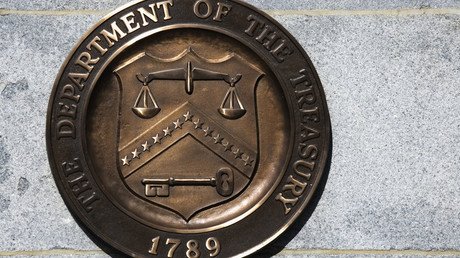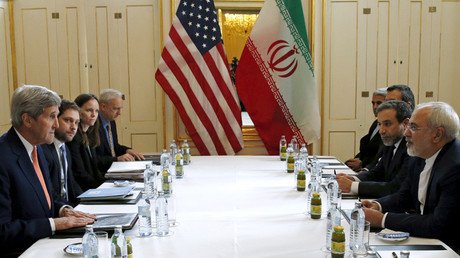Iran ready to scrap nuclear deal ‘within hours’ if US imposes new sanctions – Rouhani

Iran could backtrack on its 2015 nuclear agreement with world powers “within hours” if Washington slaps new sanctions on Tehran, Iranian President Hassan Rouhani warned, noting that the US has proved to be a “unreliable negotiator.”
“If America wants to go back to the experience [of imposing sanctions], Iran would certainly return in a short time – not a week or a month but within hours – to conditions more advanced than before the start of negotiations,” Rouhani told a session of parliament broadcast live on state television, as cited by Reuters.
“The world has clearly seen that under Trump, America has ignored international agreements and, in addition to undermining the [nuclear deal], has broken its word on the Paris agreement and the Cuba accord… and that the United States is not a good partner or a reliable negotiator,” he said.
In early August, US President Donald Trump signed into law a bill, passed by the US Congress, which imposes sanctions on Iran, Russia, and North Korea.
Following the decision, prominent libertarian and former Congressman Ron Paul accused Trump of betraying his promises to the American people by seeking a new conflict with either Iran or North Korea, warning the president that any such war will put an end to his term.
“President Trump seems to be impatiently racing toward at least one disastrous war. Maybe two. The big question is who will be first? North Korea or Iran?” Ron Paul wrote in his weekly column published on the site of the Ron Paul Institute for Peace and Prosperity last month.
Trump “seems determined to push a confrontation,” while Iran was actually “in compliance” with the deal, Paul said.
Tehran earlier said the latest round of sanctions violates the landmark 2015 agreement. Iran officially agreed to halt parts of its nuclear program and subject other sectors to increased UN monitoring in exchange for the removal of economic sanctions, in July two years ago when, following months of negotiations, the long-awaited deal was signed between Tehran and major world powers – the US, France, Britain, Russia, and China, plus Germany.
Under the deal, called the Joint Comprehensive Plan of Action (JCPOA), Tehran also agreed to cap its uranium enrichment below the level needed for bomb-grade material. It also vowed to reduce its enriched uranium stockpile from around 10,000kg to 300kg for 15 years and agreed to international inspections. In response, Western countries agreed to lift sanctions.
“Iran would not be the first to pull out of the nuclear deal, but it will not remain silent about the US repeated violations of the accord. Those who want to tear up the nuclear deal should know that they will be ripping up their own political life,” the Iranian president said earlier this month.
In late July, the US government imposed sanctions against six Iranian companies after Tehran launched a satellite into orbit, saying they were “central” to Iran’s ballistic missile program. Six enterprises listed as subsidiaries of the Shahid Hemmat Industrial Group were placed on the US sanctions list after what Treasury Secretary Steven Mnuchin described as a “provocative space launch.”
Kaveh Afrasiabi, former adviser to Iran’s nuclear negotiation team, called the latest sanctions ineffective and utile. “Unfortunately, despite the fact the Trump administration has repeatedly certified Iran’s compliance with the nuclear agreement, it continues to take these counterproductive steps that threaten the Joint Comprehensive Plan of Action (JCPOA) and elicit an Iranian response, as we have seen by the Iranian Parliament sanctioning some American entities, and Iran for a fifth time complaining to the JCPOA joint commission.”
On July 27, Iran successfully tested the Simorgh rocket, a two-stage vehicle meant to deliver small space satellites into orbit. The US government said the technology used in the launch is inherently designed to to carry a nuclear payload, in violation of UN Security Council resolutions.
Tehran denied its missile development breaches the resolution, saying its missiles are not designed to carry nuclear weapons.














